Sleepaway summer camps are something that has become an integral part of Jewish life outside of Israel, especially in the United States in Canada. In Israel, on the other hand, the culture of a one or two-month-long sleepaway camp hasn’t really been adapted to Israeli society. Until now, that is.
For many years, sleepaway camps were only an option for rich Israelis who could afford the steep price of attendance or for those who made aliyah and returned for the summers.
So what changed?
However, in the past few years, more and more camps have been established and, slowly but surely, sleepaway camp is becoming part of the Israeli mentality.
Here is a look at three Israeli sleepaway camps, all established by women who made aliyah and wanted to bring some of the positive pedagogical and educational tools from the diaspora to Israel.
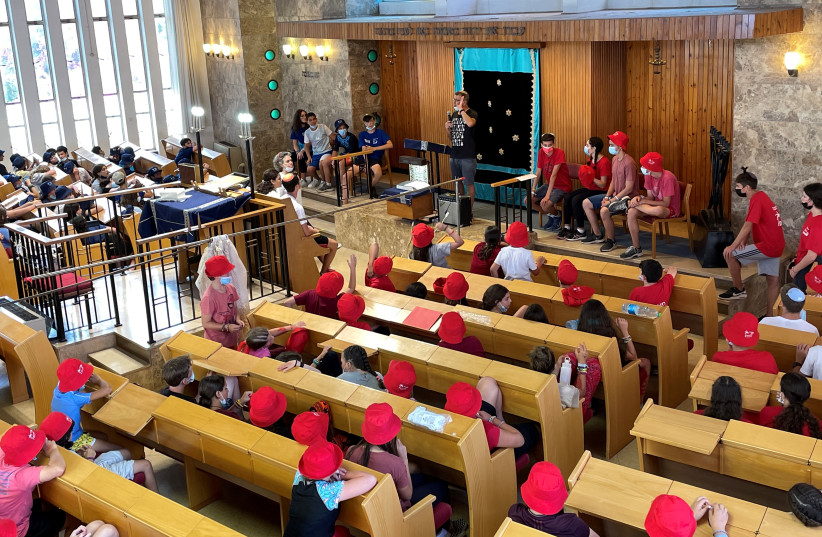
Machane Hineni
Esther Einstein made aliyah from London and is the camp director for Machane Hineni, a camp for girls finishing 8th and 9th grades in Israel. It was established 22 years ago.
“I grew up in London and was affiliated with a youth group called Sinai, though many of my friends were in Bnei Akiva,” she told The Jerusalem Post. “As a child, I was never actually allowed to participate in the Summer camp, which always fell on our family holiday and I remember how I dreamt to go and how I felt like such an outsider when they came back from camp with their incredible stories and memories that I had not been part of.”
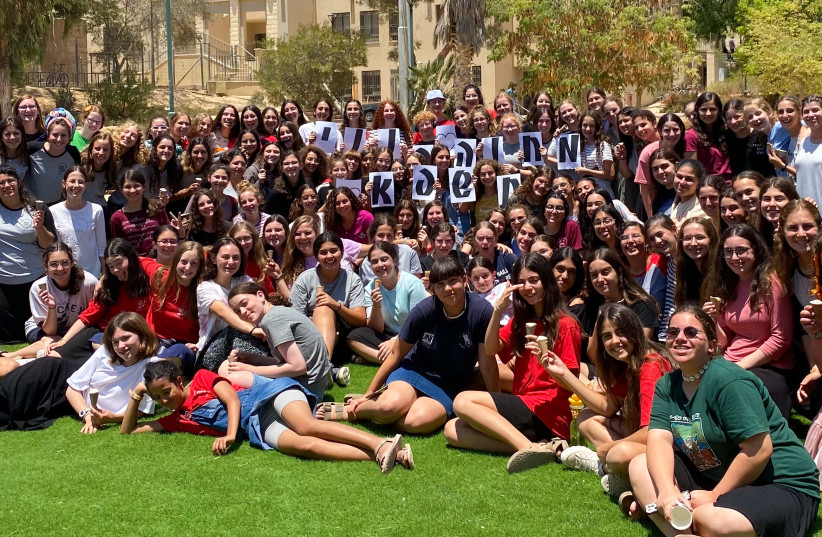
When she was 18, she was lucky enough to be chosen to be deputy head of camp for two weeks, she said, “so at least I had a chance to experience camp from the other side. Little did I know then how this was to affect the rest of my life.”
Many years later, after making aliyah in 1981, Einstein’s daughter finished 8th grade and she saw the long summer ahead. She explained: “I started researching the available programs in Israel and literally couldn’t find anything. The school holidays hold such potential for growth and adventure especially at this vulnerable age and camp is a golden opportunity to facilitate this growth.”
Einstein explained that she “liked being a pioneer,” and “we decided to create a program that would be inspiring, educational, fulfilling, meaningful and most of all, fun based, on a two week to ten-day format.” According to her experience, this time frame “is long enough to facilitate a growth process and short enough to be palatable, that I had known in my childhood and adapted to the Israeli audience.”
Yet not everyone liked the fact that the camp lasted for about two weeks. “The American-Israeli parents asked why it was so short, whereas Sabra-Israeli parents tend to ask why it is so long,” Einstein explained. “It was difficult to find the right balance and break into Israeli society to whom the idea of [a] sleepaway camp was foreign. In our original camps, there were typically 30-50 campers; in 2021, that number grew to 127.”
“The American-Israeli parents asked why it was so short, whereas Sabra-Israeli parents tend to ask why it is so long.”
Esther Einstein, Machane Hineni
Asked about the differences between camps in the UK and in Israel, she said that “in England, Jewish camps were born to fulfill a need to keep the youth together to avoid assimilation and to strengthen their Jewish identity and Jewish values. In our camp we strive for the girls to meet other girls from all over the country, to empower them and help them become aware of their own capabilities in a safe and fun atmosphere.”
Einstein said that she thinks the uniqueness of her camp is that “we inspire and believe that our campers will be the leaders of tomorrow and to this end we combine our camp program with young leadership and social awareness projects in the area that we create together with the girls.”
She added that “it is through these projects that they discover the needs of the elderly, special-needs population, one-parent families, agriculture and environmental issues and are encouraged to become proactive members of society.”
“A truly magical atmosphere is created when you are being responsible, doing something meaningful and enjoying yourself at the same time. Our intense program includes water activities, tiyulim (hikes), out-door-training, gigantic team games, health spa, campfire, music, dance and many more original activities,” she explained.
Camp Dror
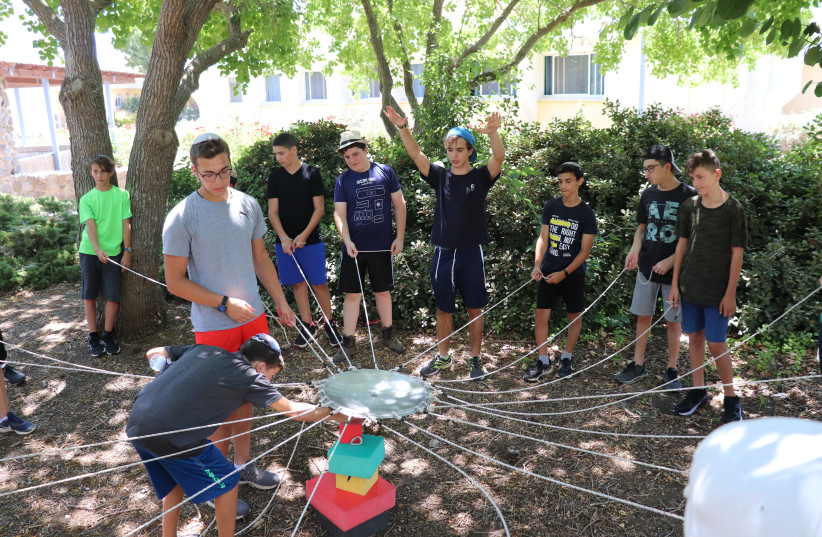
Cindy Wiesel grew up in Brooklyn, New York and is the director of Camp Dror which was established in 1995. “I spent many summers going to day camp at a bungalow colony, called Moonlight,” Wiesel remembered.
“When I went to sleep away camp I spent one summer session at Sternberg and three summers at Camp Hatikva. I spent one summer at an Israel tour camp called Moledet and as an adult, I worked at Camp Mesorah.”
She made Aliyah with her family from Bergenfield, New Jersey, in 2015. “I have so many incredible summer sleepaway memories from my childhood and still have so many friends I met there,” she explained of her connection to camp life.
“I remember the beautiful havdalah (a service that takes place at the end of the Shabbat) of the whole camp together. It was inspirational. I remember playing capture the flag and really loving it. I always hated sports as a kid, but I loved color war because even the races were fun.”
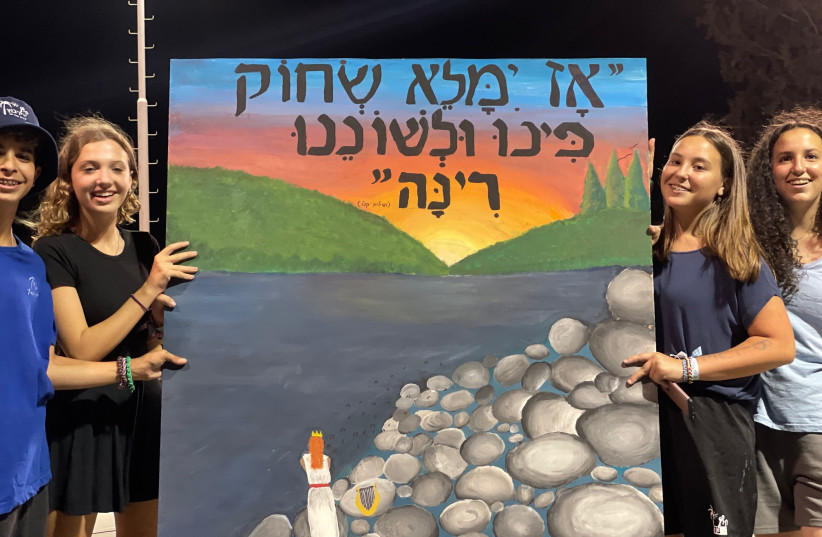
Wiesel added that she also enjoyed sending her kids to camp, “as a parent, I also loved experiencing sleep away camp through my kids and their experiences. I loved listening to all the stories they told of their adventures there.”
Wiesel thinks that the biggest difference between camps in the US and in Israel is space: “American camps are all on elaborate campuses with lakes, multiple buildings and lots of sports fields. Most Israeli camps rent space in some form of dormitory over the summer.
"I don’t know of any that have lakes with boating, swimming or fishing options. The sport fields are more limited. Because of rental space issues, most Israeli camps are significantly shorter than US counterparts."
She explained that what is unique about Camp Dror is that “we are an Orthodox camp with separate campuses for boys and girls that manages to cram two months of US summer camp experiences into 2.5 weeks.” Wiesel added that “we have all the daily camp activities including tefila (prayer services), learning, color war, night activities and trips.”
She explained that there are actually positive sides to the fact that there isn’t enough space at Israeli camps: “Because of space issues, we actually go on as many trips as a US camper would do in 8 weeks,” she said. “Our trips give the campers an opportunity to get to know and love northern Israel.”
“Because of space issues, we actually go on as many trips as a US camper would do in 8 weeks. Our trips give the campers an opportunity to get to know and love northern Israel.”
Cindy Wiesel, Camp Dror
Most of the Camp Dror campers are Olim or children of Olim from North America or Europe. But Wiesel added that each year “we get more Israeli campers too,” as they “hear about the camp from friends or relatives. Our camp also draws campers from around the world. This year we have campers from the US, Brazil, Austria, Italy, Gibraltar and Turkey.”
Wiesel agrees that there are differences between American and Israeli campers and families.
Potential parents are always concerned about sending a child who has never been to camp before,” she explained.
“How will the parent manage with the child away for more than two weeks and only be able to speak to them before Shabbat? As we take away the cell phones on the first day and return them for about two hours before Shabbat so they can call home. ‘How will my child manage if this is their first time in camp and they do not know anyone going there?’ the parents ask a lot. We have over 25 years' experience and we have dealt with this many many times.
"The children are safe and we post pictures daily of the fun and activities. Parents can always call the office to check in and we absolutely call them if there are any issues.”
Wiesel has a special message for Israeli parents: “it is important to give your child the opportunity to really be an active participant in the experience. Without phones, tv, or the internet, there are no distractions. Your child must fully engage with the people around them. Because of this and the short amount of time, helping the campers acclimate is a top priority and is done very quickly. They are kept busy all day and make friends quickly. Camp is the greatest gift you can give your child. It is how summers should be spent. The value of the social-emotional growth of your child exceeds even the value of the fun they have there.”
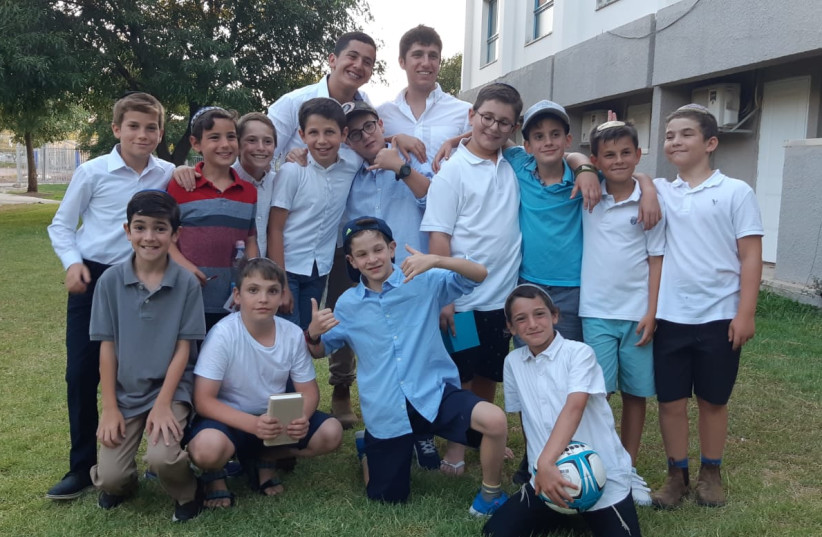
Kayitz Bakibbutz Summer camp
Kayitz Bakibbutz Summer camp was founded by Kenny Goldman and Dvora Liss, bogrei (alumni) of Bnei Akiva in North America who made aliyah with their families as members of a Garin Aliyah (group aliyah) to Kibbutz Shluchot in 1984. Both Kenny and Dvora attended Camp Moshava, Indian Orchard in Pennsylvania. Dvora was actually the first female rosh mosh (head of camp) in the history of Moshava.
25-years-ago, Kenny and Dvora were sitting on the lawn in front of the Goldman house reminiscing about their old days in Camp Moshava. Kenny and Dvora had a dream that Kibbutz Shluchot, home to both Goldman and Liss families, would be an ideal venue for an American-style sleep-away summer camp. After much planning and work, Kayitz Bakibbutz opened up in 1995 with 25 campers.
“Most of the original campers were children of our chanichim in Moshava,” Liss told the Post. She added that “these olim wanted the same experience for their kids.” This story is told every season on the opening day of camp and has become camp lore.
Over the last 26 years, Kayitz Bakibbutz has become a household name in the Israeli Summer Camp community as well as in Jewish communities around the world.
“Shluchot has become a magical special place for our camp graduates who form lasting meaningful friendships that continue as they meet throughout the year,” Liss said.
“These connections continue when the campers enter Israeli yeshivot, IDF or college. Every year we have American campers who make aliyah as lone soldiers. Their beloved summer camp experience is part of who they are today,” she explained.
Now in its 26th consecutive year, the camp has grown and developed into a two-session summer camp with over 400 campers.
“We believe that summer camp is a unique opportunity for a child to develop new skills and achievements, build self-esteem, make new friends and grow in a physically and emotionally safe environment,” Liss said.
She explained that “our Religious kibbutz is the perfect setting for accomplishing these goals: The strong support of our kibbutz members and the input of our camp parents help us constantly grow and evolve. We take the best from our varied experiences and integrate it with new ideas from the exciting world of camping, to ensure a fun meaningful summer,” Liss added.
We take the best from our varied experiences and integrate it with new ideas from the exciting world of camping, to ensure a fun meaningful summer.”
Dvora Liss
Liss concluded that as former Moshava campers, she and her partner want to pay forward: “We acknowledge that camp has contributed to our own personal development and we are excited to be continuing the camping tradition here in Eretz Yisrael.”
She added that “till this day, our closest friends went to Moshava with us. Moshava taught us all about ruach, meaningful tfila and of course the importance of living in Eretz Yisrael.”
What does the future hold?
"When I set up the Summer Camps Israel, what was in front of my eyes was the desire to allow Israeli children to have a unique experience like the one that my friends and I experienced as children who grew up in countries like Canada and the United States,” said Shawna Goodman Sone, Founder of Summer Camps Israel, an accelerator of sleepaway camps in Israel.
She added that “Summer camps are not just for fun. In a short and intense time, the kids go through a process that leaves a mark on them for life. It is an experience that shapes the future and changes reality. The camps are an amazing opportunity to empower children and lay strong foundations for their development.”
